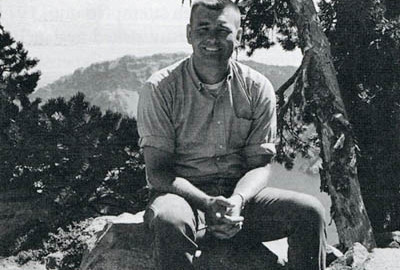It makes for one of the better ecosystem studies because you’ve got that enclosed basin under very interesting geological circumstances.
I was down at a conference in Reno in December and had lunch with Charles Goldman. I’m not a close friend, but we just happened to meet and he wanted to have lunch. We talked about Crater Lake and he’s of the opinion, as I am, that the best defense is a good offense. If you’re going to defend a lake you need to get on the offense and pursue research that will help you better understand the lake. Not only its characteristics but susceptibility to impacts.
As far as my involvement with Crater Lake, the [Oregon Historical] Quarterly article was closure. This [oral history interview] also helps me to close the book on it. I’m hoping that you will talk with the editor, Marianne [Keddington-Lang] at the Quarterly about a special issue because I think she’s very much interested. I think it would be really a nice thing to do for the park’s centennial.
I’ll talk to her about the subject and see if she’s interested.
Yes. I was thinking you might have categories [in the special issue] that you might pursue. Let’s say you would one category called science at Crater Lake which would incorporate not just research on the lake, but the stuff by geologists and foresters or whoever has done research there. There must be a lot of research.
There has been.
Then there might be a section on management. I’m sure that its scope or direction has changed over the years. It might even be interesting to review the different superintendents in regards to their management emphasis.
We have fairly decent records. That is one nice thing about Crater Lake. There are always gaps, but other parks are a lot worse off than we are.


